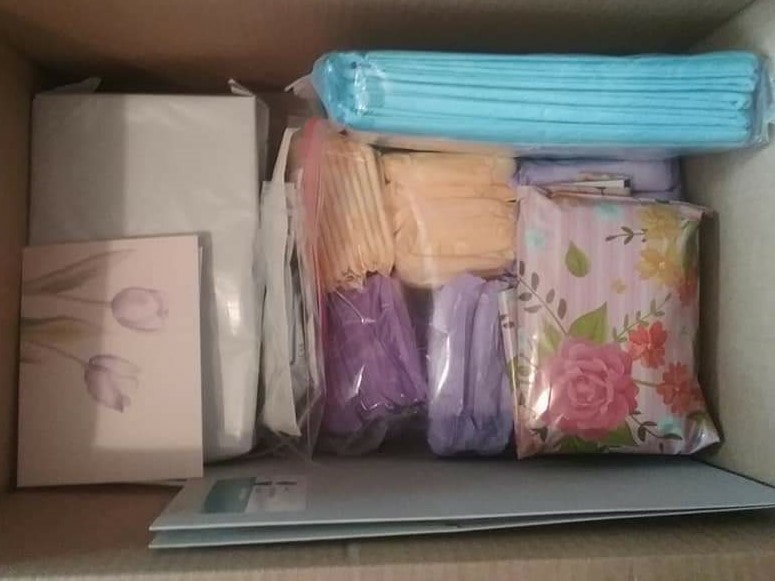|
By: EPLA Editors
On Monday we started a series on the burial of miscarried babies. Anyone who has walked through a miscarriage knows that this is a very difficult topic and we understand that things might get uncomfortable. Our desire is to forge through these murky waters as we look at ways for parents to properly grieve and heal following loss. We hope to empower parents to make the best decisions for their families. The question of what to do with the remains is difficult. Many mothers deliver their little one at home and are left alone to figure this out. Sometimes the baby is too small to identify as it has only developed as an embryo or fetus. Other parents surrender the remains for testing or they are simply dealt with by the hospital after a procedure such as a D&E. The article Yes, I Had A Miscarriage and Yes I Flushed on Unexpected Family Outing is an incredibly honest story of one woman who chose to flush the remains of her little ones. “In my hands was my baby – the size and shape of a small water balloon and the deepest shade of scarlet. Holding my bundle, carefully swaddled in toilet paper, I pushed open the door and leaned out. My eyes frantically searching for my husband because this time I didn’t want to be alone. Our eyes met and he rushed back to the restroom door. He looked down at my hands and lifted his eyes to meet mine. There, reflected back at me, I saw my fear and my heartbreak and my last grasp at denial. Maybe this was something else.” We share this article because this is the story of so many women. You are not alone. "I shuffled out of the convenience store, traumatized by what had just happened. At the time, thinking I was traumatized because I chose to flush. Now, knowing I was traumatized for a different reason. I was traumatized because having a miscarriage is traumatic." This article does a gut wrenching job shedding the light on what might be a source of shame for many women. Do not be ashamed, mama.
0 Comments
By: Emily Carrington EPLA Founder “What will happen to the body?” I asked. “It won’t really come out as a body, at that point it is just medical waste,” responded my doctor. “Oh, okay.” I paused for a second before I went onto the next question. My husband and I were meeting with my OBGYN. Only two days earlier we heard the words that no expecting parents ever want to hear: “I am sorry, there is no heartbeat.” We had gone home to collect our thoughts and now we were back with a notepad full of questions. In addition to mourning the loss of our first child, we had to decide how to move forward. The doctor explained that this was a missed miscarriage, meaning that the baby had died a few weeks earlier, but my body had not yet expelled the remains. I had the choice to wait for my body to catch up naturally or schedule a D&C, a procedure to remove the remains. Less than three weeks away from moving across the country, we feared the unknown. What if everything started sometime on our 21-hour road trip? What if I had to deliver this baby in a truck stop in Arkansas? After much discussion and working through our list of questions, we decided that the D&C was the best option. We left his office and scheduled the procedure for two days later. A couple of weeks later, we returned to his office for my post operation appointment. He told us everything went as expected and the lab said it found “the products of conception.”
“Of course they found the products of conception,” I thought. Not only did I have a positive pregnancy test and 6 weeks of horrible morning sickness to prove I was pregnant, only a month prior we had seen our little one alive on the screen. There was a heartbeat. Of course there was a baby in there. Since then I have thought a lot about that week. I do not blame my doctor for his words or for the medical terms he used. A miscarriage is a medical event, and we were making medical decisions. This was a place for a clinical straight forward approach, but we weren’t just talking about any medical procedure. This was the procedure that removed my deceased child from my womb. We were also mourning the life of our baby. A life that we knew was there. A life that only ever existed inside of me. And when I asked the doctor about the body, I felt ashamed for asking such a silly question. Five years, three more pregnancies, and one healthy child later this mama heart is no longer ashamed. Of course I wanted to know what would happen to the body of my child, even if my child was still in the early stages of development. I wanted my child buried or cremated, not thrown away with the medical waste. The question of burial for a first trimester baby loss is a muddy one. Hospital regulations, cemetery procedures, and state laws vary. Additionally, the situation varies from family to family. Sometimes there is no discernable body due to gestational age. Sometimes bodies cannot be retrieved. Sometimes families need to surrender the body for testing. Sometimes the bodies are surrendered in medical procedures such as a D&C or D&E. Over the next few weeks, we will to try to unmuddy the waters, as we explore burial options for early pregnancy loss. We know that everyone grieves differently, and for some, burial might not be that important or it might be important but not possible. But for others, it might serve as one way to honor and memorialize their little one. As always, we hope to equip and connect our readers. Together we can bear one another’s burdens. Emily Carrington is the founder of the EPLA and mother to four children. By: The Editors
Families experience an extreme range of emotions before and after a miscarriage. The elation of pregnancy nosedives when parents find out they have lost their child. In the former, parents often rejoice with loved ones, all parties exuberant about the new life. In the latter, loss parents too often suffer alone, leery of how uncomfortable their sadness makes other people. In the Daily Mail, Elizabeth Day sums it up this way while hoping Meghan Markel has a healthy child: “So as Meghan prepares to give birth to what I hope will be a happy and healthy child, I think not just of her but of all the other women who might be experiencing loss. I would like these women to know that the sadness they feel over their miscarriage is just as important as the joy we are expected to channel for someone else’s pregnancy. I would like them to know that they are not alone.” For those of you struggling with the sadness of miscarriage, know that your pain matters to others. Your little one matters to others. You are not alone. Please check out the entire piece.  Miscarriage kits help women deal with the physical turmoil following a miscarriage. Miscarriage kits help women deal with the physical turmoil following a miscarriage. By: Maria Servold EPLA Editor In the hours, days, and weeks following a miscarriage, a woman will have many physical needs. Unfortunately, miscarriage can be a physically painful and sometimes gruesome process - often feeling like injury added to the insult of having lost a precious baby. At the Early Pregnancy Loss Association, we seek to support women and families in many ways after a loss. We found that many women struggled to know what sort of physical supplies they would need following a loss, nor did they want to have to go to a pharmacy to purchase what they needed while they were going through such a traumatic experience. For this reason, we created Miscarriage Care Kits and began distributing them locally via doctors’ offices, hospitals, and health departments. We offer two kits: a small one with a few sanitary and comfort items for a woman whose miscarriage is complete or after she has had a D&C procedure; as well as a larger kit for women who plan to miscarry at home. In order to gather exactly what we need for the kits, we have created an Amazon Wish List. Items purchased from the list will go directly to our headquarters, where our volunteers can put together the kits, helping to ease one part of the burden of miscarriage. If you are able, please consider donating via this link. Thank you! Maria Servold is an Editor at the EPLA, Assistant Director of the Herbert H. Dow II Program in American Journalism, and Lecturer in Journalism at Hillsdale College By: Carissa Dobson Karen was a mother of four healthy boys and pregnant with her fifth when she was told that her baby might not make it. She was induced on her due date, September 10th, and gave birth to Stephen, who survived only a couple hours. “I’m a tender person, and I remember… it was so hard to talk to people without tears coming out my eyes, and that’s hard. That’s really hard,” she said. “Because, you know, you’re very vulnerable. And it’s not always fun going around with tears in your eyes, or stuff like that. It’s hard. Tears help to bring healing, it’s true. But it’s not easy.” After the sorrow of losing Stephen, Karen decided to have a surgery to prevent further pregnancies. She later regretted her decision and had a reversal done. “I was excited. I said, ‘Oh, wow, I can go ahead and have kids now!” Karen said. Only two months later she was pregnant again, and she felt ready to have her next child. Unfortunately, before even seeing a doctor she began to experience spotting and cramps, and then she miscarried. “I was surprised I had a miscarriage because I’d been really healthy all along without any problems, so this did take me by surprise,” she said. Karen was shocked and devastated by the loss. Karen and her husband, Mike, decided to try again, and she found out several months later that she was pregnant for the seventh time. She went in for an ultrasound, and was met with shocking news. “The woman who did the ultrasound was really surprised. (She said,) ‘You know you have three sacs here?’ I said, ‘Are you serious?’” Although Karen was pregnant with triplets, it looked like none of them were alive at that point. “I just prayed and prayed that one or two of them would still be alive,” Karen said. Once more, she miscarried. She lost all three. “I did miscarry on my own and it was just a horrible time again… Oh, it is just a scary, hard time. And you’re doing it by yourself, you know?”
Karen was devastated, and she felt alone. She had emotional problems, stress, weakness in her muscles, and the numbness and tingling continued. “I was crushed after I miscarried… It was very, very difficult.” During this time, Karen would cry and talk to God, trying to sort out what was happening. “I knew I needed God, I knew He still loved me, I knew He was in charge, but yet it was hard,” she said. Her health was declining, and she didn’t feel comfortable going out of the house. Karen kept her grief to herself. “I didn’t know a lot of people that had miscarriages at that point. Now it’s much more open and common… It was kept more inward, so those were some inner issues that I had to deal with.” This was a different experience than losing a child after birth. “I remember getting a card or two from people with Stephen, because that was public, of course. But with the miscarriages it was pretty much on my own with the grieving. ” Following the loss of the triplets Karen suffered a long and difficult season and she thought she might not ever become pregnant again. Eventually, Karen had reason to think she was finally pregnant again. “I noticed toward the end of December going into January of ’98, I felt like I might be pregnant again, because my cycle was a little late. And I was excited, but I was so scared. Because I didn’t want the same thing that happened to Stephen, and I didn’t want to miscarry again. So, I was thinking, trust in God.” Fortunately, this time, Karen had a friend who came alongside her and encouraged her through her pregnancy. “She was pregnant at the time, too. And we would go on walks and we would talk, and she was so dear to me… she just encouraged me… and I am so grateful.” Eventually, it was time to check on the child’s health. “I ended up going in for an ultrasound, which scared me to pieces because I hadn’t had one done that was ever good,” Karen said. Luckily, for the first time in years, Karen had a positive ultrasound. “I could just cry now. I was laying on that table and they said everything was okay. Its heart was beating, things were developing, things like that.” Karen delivered a beautiful, healthy baby girl named Katrina. She and her husband were overjoyed. “I just had a hallelujah time of praise to God. Because the baby was born… And it’s a girl!” Katrina grew up healthy and strong, and Karen thanks God for it all. Karen knows her happy ending isn’t consistent with everyone’s experience. “I know this does not happen to everybody, that you’re allowed to end up having another pregnancy and everything goes well,” Karen said. “And it’s gotta be really hard for those women that it doesn’t happen to. And God showed a lot of grace towards me. And I’m so grateful.” Carissa Dobson is a junior Professional Writing and Information Design major at Cedarville University. By: Nick Carrington EPLA Editor Losing a child in the womb obviously causes a lot of pain. The heartache may linger at varying intensities for a lifetime. But, miscarriage also has other negative effects, including sometimes causing extreme anxiety. In fact, some studies suggest that around 20% of women who miscarry suffer from anxiety or depression. These anxieties often manifest themselves during subsequent pregnancies. I’ve known women who have had panic attacks the night before an ultrasound, haunted by the result of their previous visit. Some mothers become compulsive as they try everything they can to “prevent” another miscarriage. However the anxiety is expressed, it’s a serious matter that takes away from the joy of another pregnancy. If you or a loved one are struggling through anxiety after a miscarriage, what can you do? Everyone is different, but these strategies are a good starting point (you should always consult your doctor about feelings of anxiety and depression). See a Counselor or Religious Leader Miscarriage attacks women physically, emotionally, and spiritually. Even after a mother’s body has recovered, she may still have emotional and spiritual wounds that need to heal. Professional counselors and religious leaders can help you work through not only your grief, but also your anxieties about loss and future pregnancies. These professionals have likely counseled many people through a plethora of mental and spiritual struggles. Their listening ear and words of wisdom are invaluable. Talk to a Loved One Who Has Gone through It. While they cannot provide the depth of professional advice that counselors and religious leaders can, loved ones who have fought through their own anxiety battles may provide comfort in a time of need. No two situations are the same, but a friend or family member’s miscarriage experience likely has similarities that will allow them to sympathize with you. We have already highlighted just how helpful having a loved one present can be, but those who have experienced miscarriage may be especially helpful as anxiety rises. Read the Facts Miscarriages are almost never the mother’s fault. They typically result from chromosomal abnormalities that cannot be avoided. Women who experience a miscarriage will most likely never have another one. In fact, only 1 percent of women have two or more miscarriages. These facts and others may ease a mother’s anxiety when they get pregnant again. They certainly aren’t guarantees, but they do provide perspective on a family’s situation. Get Active After healing, mothers should consider regular exercise to reduce anxiety. If you suffer from anxiety attacks, exercising four times a week may reduce the severity of these episodes. You may need to spend only 20-30 minutes exercising at a time to see some success, and for most women, working out during pregnancy has plenty of physical benefits as well. Ask Others to Pray If you believe in God, knowing that people are praying for you can comfort the soul. You may not feel comfortable sharing all the details of your anxieties with others, but if they generally know you are struggling, they can beseech the Almighty with some direction to your needs. This support often goes a long way to providing inner peace. Final Thoughts Anxiety is common after a miscarriage, and it manifests in different ways. Remember to always consult your doctor about your anxieties. It may require professional or medical attention. Even so, one or more of these ideas may provide some relief for women and families as they battle their fears in subsequent pregnancies. Nick Carrington is an Editor for the EPLA and Assistant Professor of Professional Writing at Cedarville University.
By: EPLA Editors
Parents who lose children to miscarriage have a long road of healing ahead. In the immediate aftermath of most deaths, families mourn with loved ones at memorial services and funerals. They receive gifts as people seek to contribute to the recovery process. Not so for parents who lose children in the womb. The lack of recognition by our culture that a death has taken place only exacerbates the pain that parents feel. That’s why we stand behind Grace Emily Stark’s suggestion at Verily to send flowers to families who have miscarried. Ms. Stark writes about why the flowers sent to her after she miscarried meant so much: “I now know that was exactly why those flowers we received in the wake of our miscarriage were such a perfect gift—they were a recognition, and therefore a validation, of our very real grief. We had after all experienced the death of our child, and those flowers spoke to that reality in a way that nothing else seemed to. As simple a gesture as they may have seemed by those who sent them, those flowers were the recognition of the traumatic card we’d been dealt, and the permission that recognition gave me to grieve started me on the path to eventual healing. Even if I didn’t realize it myself at the time.” It's a beautiful piece, and we encourage you to go read the entire article. At Hope Blooms, we have suggested ways that you can encourage loved ones following a miscarriage. We hope you will also consider sending flowers to parents of miscarried children to acknowledge the loss of their child. It might mean more than you could ever know. By: Emily Carrington EPLA Founder Winter has always been hard for me. The long dark nights and the cold short days always seem endless. By February I am often tired of even the special joys of winter. Snow is no longer magical; it is burdensome. Sweaters are no longer cozy; they are itchy. My stomach is tired of soup, and my feet are tired of boots. And every winter my mood shifts to reflect the weary world. February is hard. But the winter of 2015 was the hardest. Once Ohio natives, my husband and I had recently returned to the cold midwest after a glorious five year sun-filled stay in Texas. Our first winter in Michigan was brutal, one of the worst on record, but that is not what set this winter apart. This was the first winter after we lost our first two children in early pregnancy. Our first baby died in May of 2014, and our second little one died in September. Our arms were empty, our hearts were broken, and the weight of death haunted each winter day. As we navigated our new life I struggled with my own identity, purpose, and path. In the face of pregnancy loss, my ability to exercise control in my life had been stripped from me. While I grieved the deaths of my children, I also grieved the limits of my own autonomy. This season of life often felt volatile, hopeless, and unpredictable; much like the winter we continued to endure. We did not know what else the winter would bring, or when it would end. Would life ever come again? As spring broke my heart was lifted. The first warm day. The first daffodils poking out of an otherwise dreary landscape. That winter I knew suffering, but that spring I felt a inkling of joy and hope. A small glimmer of hope that I would learn to live with my grief and find joy in the places it is offered.
Four years later I now appreciate the rhythm of seasons; both atmospheric and personal. Since then, I have seen more suffering, and I have also seen more joy. This is true not just in my own fertility journey, but in my life, relationships, experiences, and faith. In my sufferings I have relied on others, and I have relied on God. I have asked for help and been honest about my suffering. And it was in these places, in my vulnerability, I was blessed with love - a vision of spring. Because of the winter of 2015, I look forward to the springs. I look forward to the seasons of spring or even just the moments where I am offered a glimpse of spring. I am also more patient with the winters. Dear reader, if you are suffering a weary winter know that it is okay to seek help. It is in these places of community I found love and hope. A counselor, pastor, or support group might be a place to connect with others who identify with your suffering. Over the last few weeks we have been highlighting the work of a group called Share Pregnancy and Infant Loss Support. If you are not sure where to start, we encourage you to visit their website and consider their resources. Emily Carrington is the founder of the EPLA and mother to four children. |
Archives
December 2023
Categories
All
|





 RSS Feed
RSS Feed